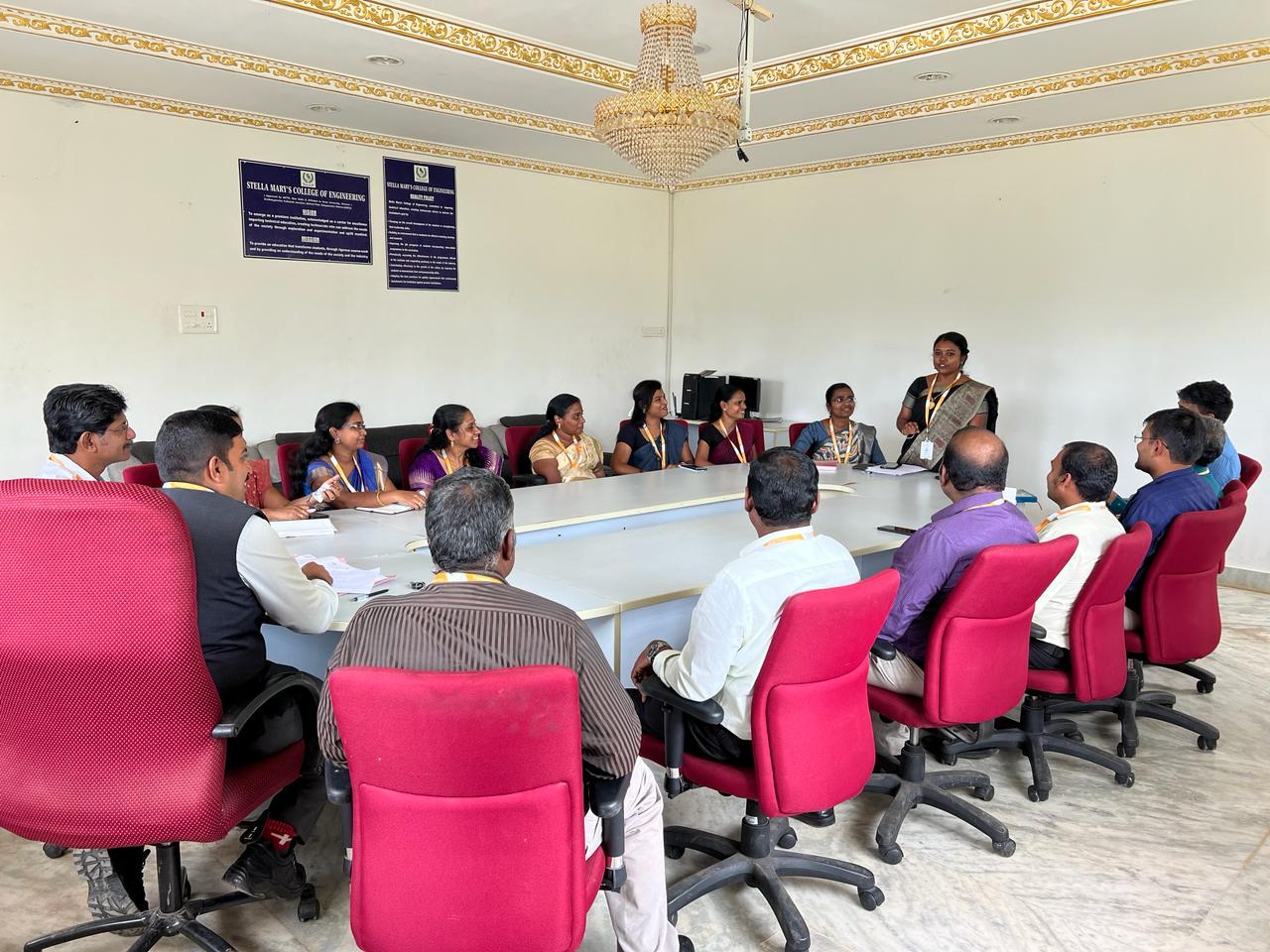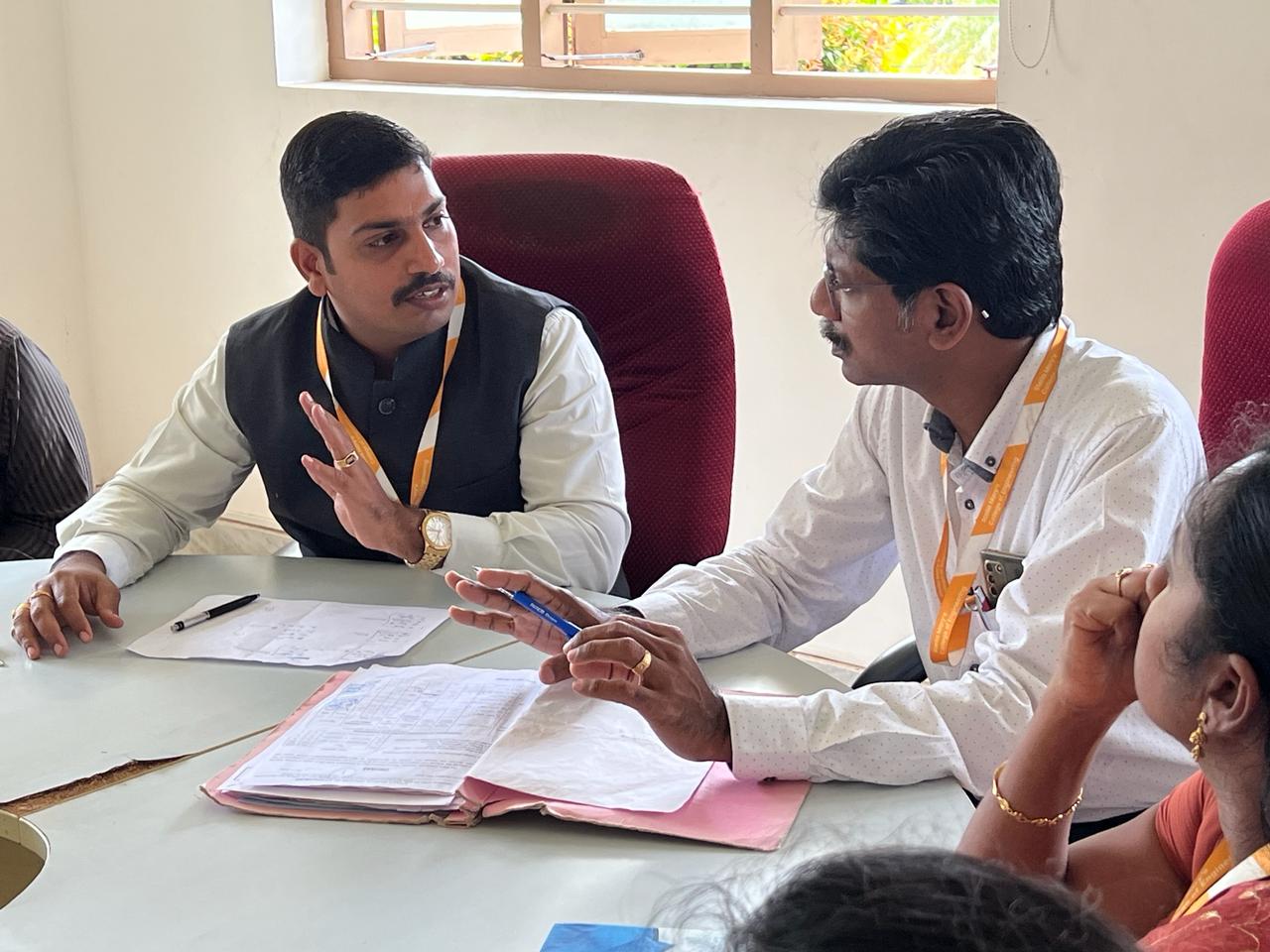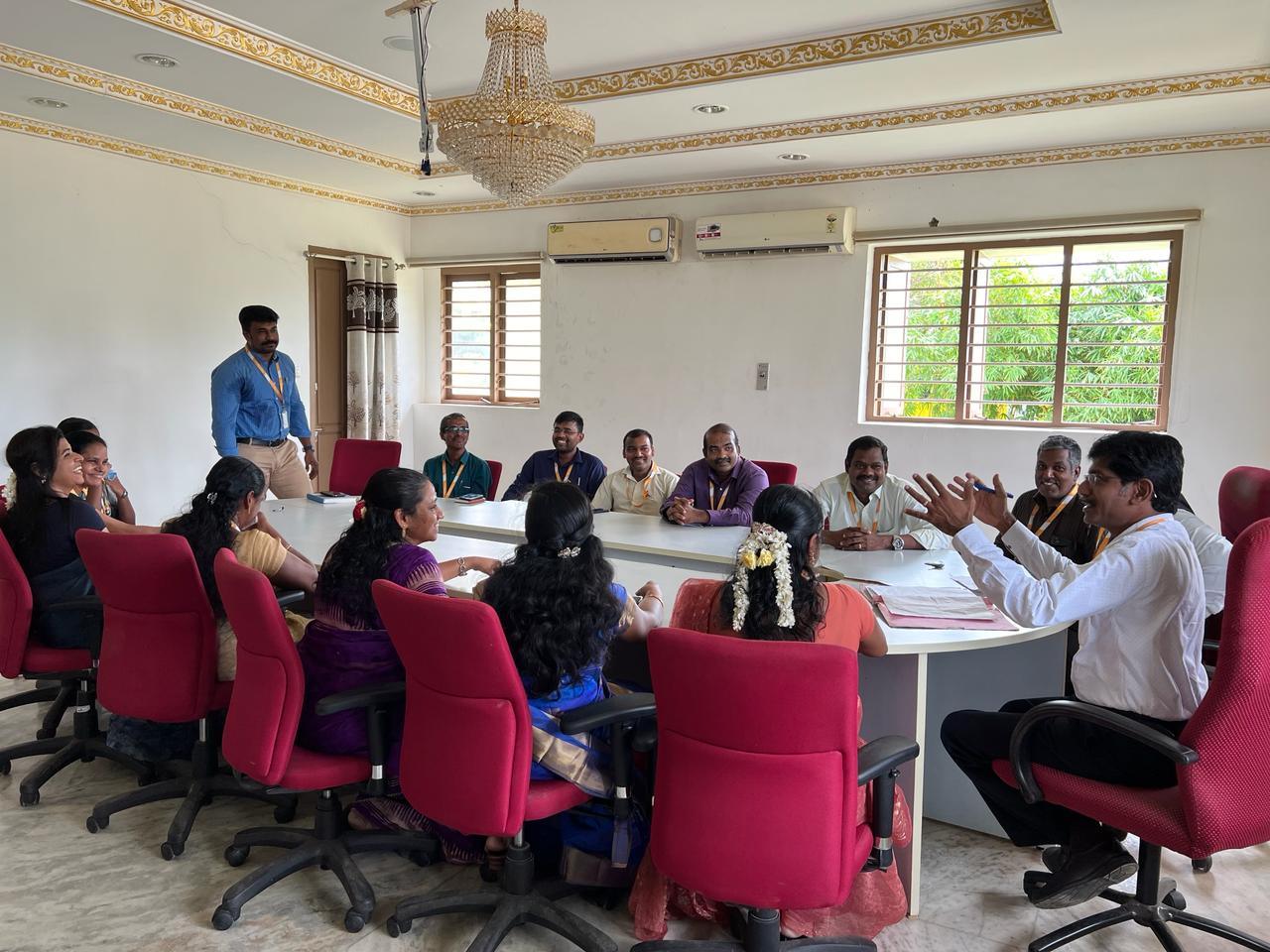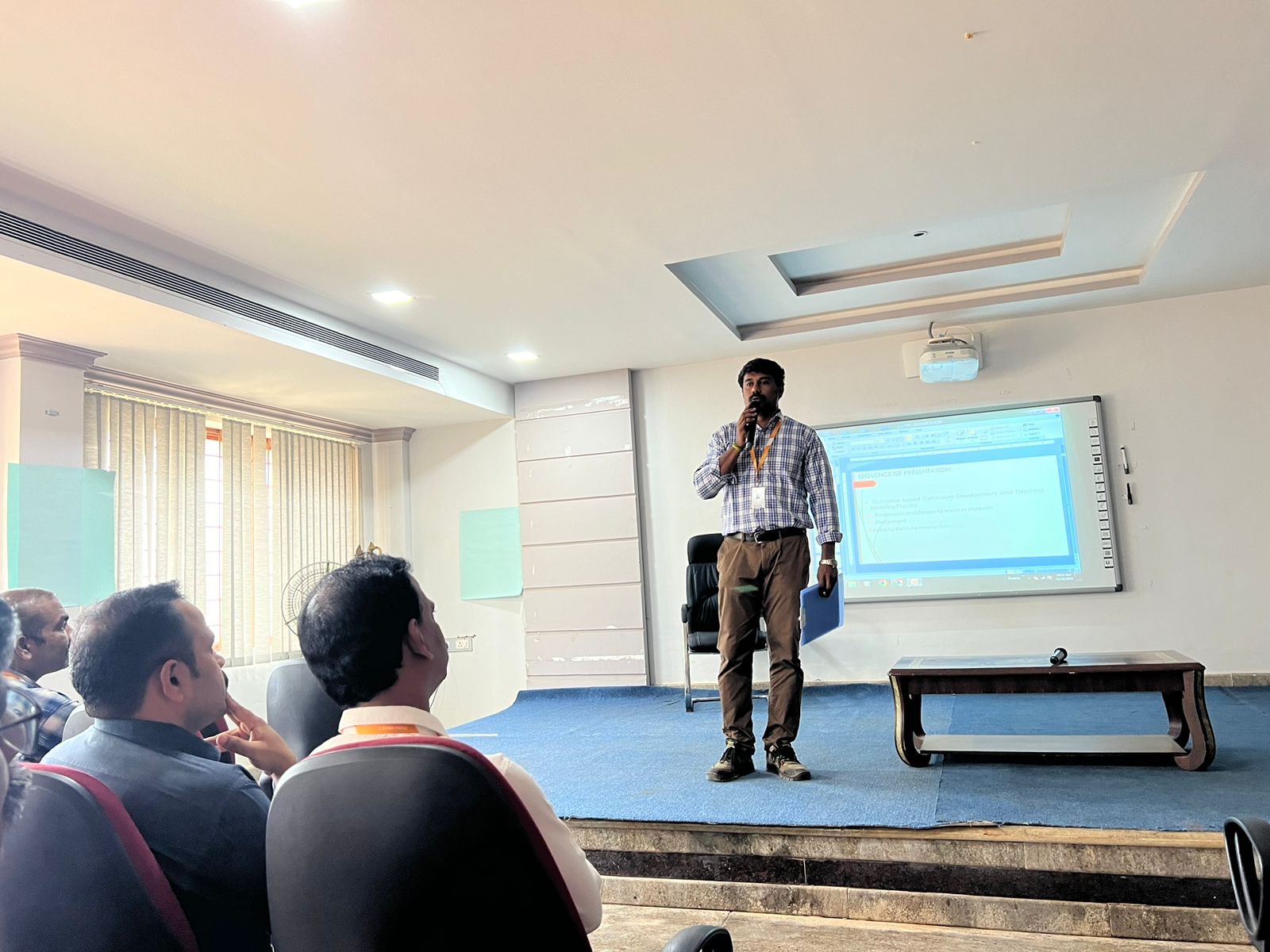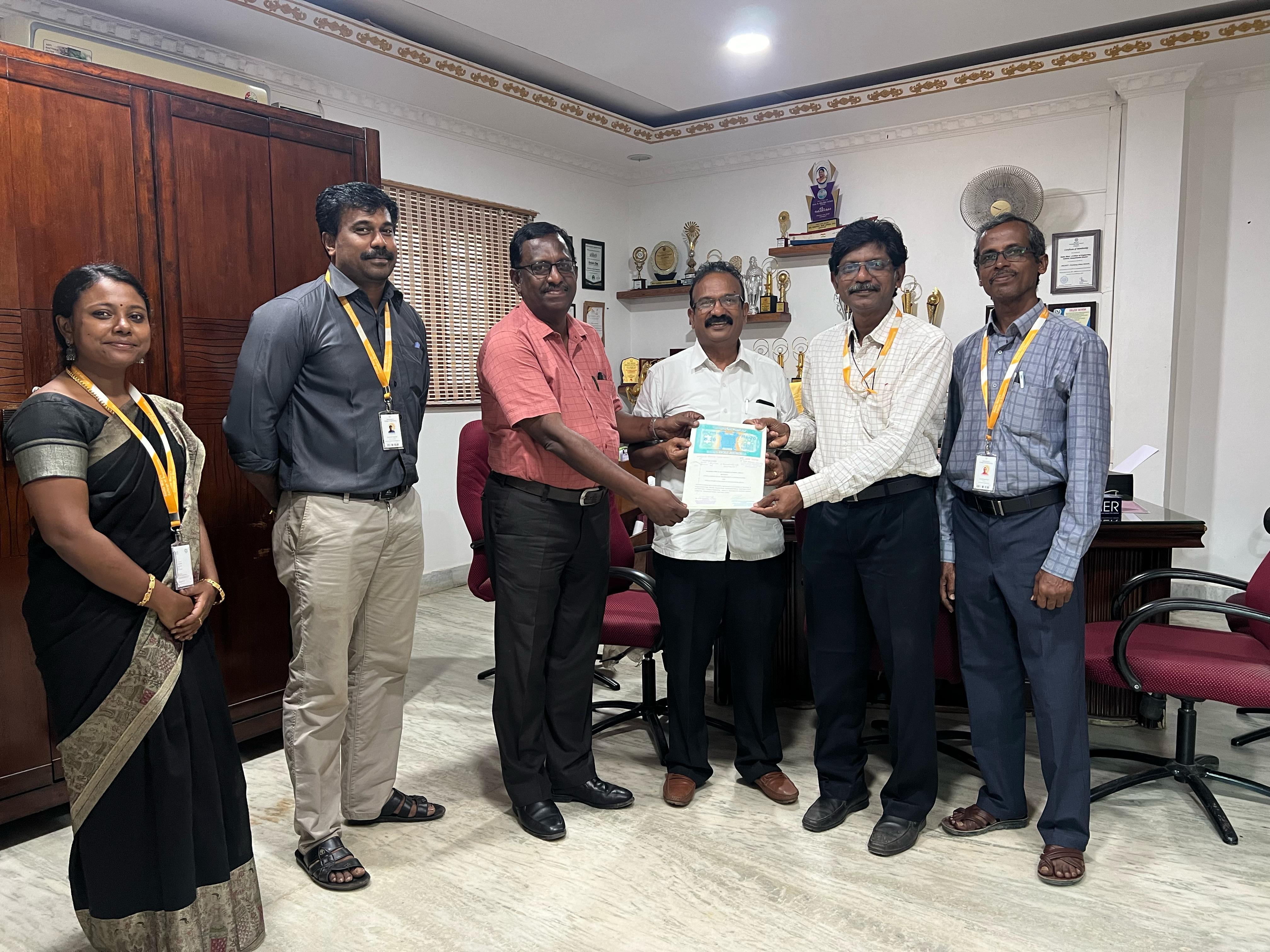Internal Quality Assurance Cell (IQAC)
Overview
The National Assessment and Accreditation Council (NAAC), Bangalore proposes that every accredited institution should establish an Internal Quality Assurance Cell (IQAC) as a post-accreditation quality sustenance measure, in pursuance of its action plan in terms of performance evaluation, assessment and accreditation and quality up-gradation of institutions of higher education. The IQAC is a part of the institution’s system and works towards the realisation of the goals of quality enhancement and sustenance, since quality enhancement is a continuous process. The key task of the IQAC is to evolve a system for conscious, consistent and catalytic improvement in the overall performance of institutions. IQAC will channelize all efforts and measures of the institution towards promoting its holistic academic excellence, during the post-accreditation period.
The first step towards internalization and institutionalization of quality enhancement initiatives is the work of the IQAC. In all the constituents of the institution, its success depends upon the sense of belongingness and participation that it can implant. The IQAC will be a facilitative and participative voluntary system of the institution and it also has the potential to become a vehicle for steering in quality enhancement in terms of working out planned interventionist strategies thereby removing deficiencies and enhancing quality.
VISION
MISSION

Members




Administrative Members

Dr.Michael Raj
Professor & Head / MECH
Dr.F.R.Shiny Malar
Professor & Head / CSE
Mr.N.Michael Franklin
Assistant Professor & Head / ECE
Dr.A.Gayathri
Assistant Professor & Head / EEE
Mr.S.Ravi Kumar
Assistant Professor/S&H CoordinatorLocal Society Member
Dr. M. Anish John Paul
Local SocietyAlumni
Ms. R.S. Reshma
AlumniIndustrialist
Mr. A. Annamalai
Managing Director, Jebby Engineers, Channel Street, Karavillai.Mr. M. Madhavan
Managing Director, Aruna Industries, Padanthalamoodu.Students Members
Mr. D. Allwin Sanjay
CSE-IVContact

Dr.Ezhil Vignesh
IQAC Coordinator, Associate Professor / EEEMeeting
The functions of the IQAC are,
- Developing and applying quality benchmarks/parameters for various academic and administrative activities of the institution.
- Making possible the creation of a learner-centric environment favourable for quality education and also the very much needed faculty maturation to take up the required knowledge and technology for participatory teaching and learning process.
- Making arrangements for feedback responses from students and parents on quality-related institutional processes.
- Disseminating the information on various quality parameters of higher education.
- Organizing inter and intra-institutional workshops and seminars that are focussed on quality-based themes and the promotion of quality circles.
- Documenting the different programmes/activities that lead to quality improvement.
- Acting as a nodal agency of the Institution that coordinates quality-related activities.
- Developing and maintaining the institutional database through MIS for the purpose of keeping up /enhancing the quality of the institution.
- Developing Quality Culture in the institution.
- Preparing the Annual Quality Assurance Report (AQAR) as per NAAC guidelines and submit to NAAC.
Benefits
- Ensuring a heightened level of clarity and focus in the institutional functioning towards quality enhancement.
- Ensuring internalization of the quality culture.
- Ensuring improvement and synchronization among various activities of the institution and institutionalizing all best practices.
- Providing a strong footing for decision-making to improve institutional functioning.
- Building a systematic procedure of documentation and internal communication.
1.Strengthening Academic Quality
-
Objective: Ensure high-quality teaching-learning process
- Implement Outcome-Based Education (OBE) across all programs
- Conduct regular academic audits
- Faculty Development Programs (FDPs)
- Encourage innovative teaching practices Expected Outcome
- Improved student learning outcomes and teaching effectiveness
2.Enhancing Research and Innovation
-
Objective : Promote a research-oriented academic culture
- Establish research centers
- Encourage funded research projects and consultancies
- Incentivize publications and patent filing Expected Outcome
- Increase in research output, patents, and industry-funded projects
3.Curriculum Enhancement
-
Objective : Ensure relevance and quality of curriculum
- Regular revision of curriculum through BoS
- Industry and alumni feedback integration
- Introduce courses on emerging areas Expected Outcome
- Industry-aligned, flexible, and future-ready curriculum
4.Student Development and Support
-
Objective : Provide holistic support for student success
- Skill development programs
- Strong placement and internship Expected Outcome
- Higher placement percentage and employability
5.Faculty Development
-
Objective : Empower faculty for continuous learning and growth
- FDPs, STTPs, and NPTEL course tracking
- Research grants and higher studies encouragement Expected Outcome
- Faculty satisfaction, retention, and academic contribution growth
6.Quality Infrastructure
-
Objective : Upgrade infrastructure and learning environment
- Smart classrooms, e-content studios
- State-of-the-art labs
- Upgraded library and learning Expected Outcome
- Improved learning environment and digital access
7.Stakeholder Engagement
-
Objective : Active collaboration with alumni, industry, and society
- Alumni lectures and mentoring
- MoUs with industry
- Community engagement Expected Outcome
- Enhanced collaboration and networking opportunities
8.Accreditation and Benchmarking
-
Objective : Ensure compliance with quality standards and frameworks
- Prepare for NAAC re-accreditation, NBA, NIRF, ARIIA rankings
- Internal academic and administrative audits Expected Outcome
- Recognition, rankings, and improved visibility
9.Governance and Leadership
-
Objective : Promote transparency, participation, and policy-driven decision-making
- Review and strengthen policies
- Implement ERP for data management
- Conduct performance appraisals and audits Expected Outcome
- Efficient and participative governance
10.Sustainable Quality Culture
-
Objective : Embed quality practices in all institutional activities
- Conduct annual quality assurance workshops
- Disseminate best practices
- Celebrate Quality Day Expected Outcome
- Strong internal quality consciousness
11.Community and Extension Activities
-
Objective : Encourage socially responsible initiatives
- Promote NSS, NCC, Rotaract, WDC, and clubs
- Encourage tech-based societal Expected Outcome
- Positive societal impact and student civic engagement
12.Documentation and Reporting
-
Objective : Maintain systematic quality documentation and reporting
- Annual AQAR submission
- Maintain IQAC minutes, action taken reports, and quality metrics Expected Outcome
- Timely and compliant submissions and archival
IQAC Roles and Responsibilities – Stella Mary’s College of Engineering
- Ensuring transparency, accountability, and commitment in all institutional processes.
- Striving for excellence in teaching, learning, and research.
- Promoting equitable access to education and inclusivity for all sections of society.
- Fostering innovation and industry-academia collaboration for enhanced employability.
- Implementing modern teaching-learning methodologies and technology integration.
- Strengthening research initiatives and facilitating national and international collaborations.
- Ensuring timely, efficient, and effective execution of academic, administrative, and financial tasks.
- Maintaining credibility in evaluation, assessment, and accreditation processes.
- Monitoring and optimizing infrastructure, support systems, and student services.
- Promoting sustainability, resilience, and long-term institutional growth.
- Encouraging ethical and fair practices in governance and decision-making.
- Organizing training programs, workshops, and seminars to enhance faculty and student development.
- Documenting and institutionalizing best practices for continuous improvement.
- Establishing systematic feedback mechanisms for students, faculty, and stakeholders.
- Monitoring NBA-accredited departments to maintain quality standards.
- Completing the NBA pre-qualifier annually for non-accredited departments and notifying the Principal and CDC regarding accreditation eligibility.
Accreditation Certificates

Best Practice
1.ENRICHING LIVES THROUGH INNOVATION AND ENTREPRENEURSHIP
Objective
- To nourish the spirit of innovation among students / Faculties
- To impart and build the entrepreneurial talents and skills among students/ Faculties
- To stimulate the growth and development of student/ Faculties
The Context
- Since Entrepreneurship and innovation are intricately connected, with each other in providing the avenue for transforming innovative ideas into tangible and sustainable ventures. In this regard, the college's cell “Stella Mary’s Institution’s Innovation Council” seeks to provide a complete ecosystem that prepares the next generation of thinkers to lead design initiatives that benefit society and the industry at large.
The Practice
- Innovation and Entrepreneurship Development Centre was started with an aim to familiarize students with the entrepreneurial journey.
- Inviting well trained experts from industries to train and inspire the students towards Entrepreneurship.
- Established The Intellectual Property Cell, to provide guidelines on applicable laws and regulations.
- Micro, Small & Medium Enterprises Incubation Centre enhances and boosts the innovative culture among the students and faculties.
Evidence of success
- The Institution’s Innovation Council was established in the college from 2020-2021 and since its inception the institution has made successive progress. Stella Mary’s College of Engineering has earned 4 Star rating out of 5 in the final assessment by Institution’s Innovation Council of Ministry of Education for the academic year 2022-2023.
- Patent Filed is gradually increased from the AY 2020-2021, AY 2021-2022, AY 2022-2023 & AY2023-2024 is 3(Australian Grand), 3(Indian Published), 9(Indian Published) and 13(11Indian Published + 2 UK Grand) respectively.
- In the Hackathon Category, MSME 2.0 – 4 teams had been selected in the primary round.
- Kumari Hackathon runner, SIH 2020 one team – Third position
- SIH 2021 – selected for grand finale and SIH 2023 4 teams selected from the institution level to district wise competition.
- Nan Mudhalvan Niral Thiruvizha Hackathon – 1 team Selected and received Rs.10,000 as Grant
- Alumni had started their startup through our MSME Incubation Centre.
- Byte Bash Blitz is an innovative coding Organisation spearheaded by the Center for Innovation at Stella Mary's College of Engineering. Established in 2023, Byte Bash Blitz was conceived with the aim of empowering students to navigate the rapidly evolving landscape of coding technology independently.
Problems Encountered and Resources required
- Financial limitations prevented students from creating commercial products.
- A venture capital program is required to support students.
- Mentorship is necessary for students to develop creative business models
- Requirement for an on-campus Entrepreneur Hub, Incubator, Centre for Innovation, or comparable establishment to facilitate student entrepreneurship endeavours.
2.ECOSYSTEM TO ENCOURAGE SPORTSMANSHIP
Objective
- To enable the players to realize their full potential by offering them both physical and emotional support and to produce [Zonal/Interzonal/University level/state/national/international level player].
The Context
- Games and athletics are crucial to a student's overall growth. Participating in sports is thought to improve students' focus, self-control, teamwork, mental clarity, and confidence. The college offers the greatest facilities to encourage sports participation among its students.
The Practice
- The college and the director of physical education evaluate each student's athletic ability and provide the required skill training all year long.
- Micro-level sports talent search is a component of the admissions process for the sports quota.
- Identifying and developing young athletes by providing free education, free boarding, and free lodging
- The regular training and up gradation practice commence right from the beginning of the academic year.
- For sports activities, our college have training halls, indoor auditorium (table tennis 4 tables), and well-furnished ground for football, basketball.
- Two basketball court, two ball badminton court, 2throw ball court, volley ball court and badminton court are available in our college.
Evidence and Success
- College students grab many medals, awards and championships in the Zonal /Inter zonal /University level/state/national/international sports, events/ competitions.
- Outstanding performance of the players takes the college to the next level in all the sports events.
Problems Encountered and Resources Required
- Students who view professional education as such will likely have busy schedules.
- So we allow the students to practice after college hours as needed.
- Students who are exposed to specialized training, permission is given for them to arrive at the college late or leave early.
- These authorizations relieve the students of the burden of adhering to the institute's operating hours.
Institutional Distinctiveness
- Communication training programs to improve the communication skills and the English fluency in students.
- Campus training programs that help to impart a sound knowledge of technical skills to students.
- Training on soft skills, resume preparation, personal interviews and group discussions, through our Corporate Relations department.
The Corporate Relations cell is an integral part of our institution, which ensures that the students are well trained and motivated to face campus interviews efficiently. The placement support teams make an effort to organize training related to aptitude, soft skills, technical skills and corporate expectations to groom the students well for the interview process.
National and International Placement
- It is our institute’s distinctiveness in bringing in recruiters from reputed companies from India and abroad placement.
- The performance of students is improved
- Easy way to identify the absentees in class and Examinations
Memorandum of understanding
- We had a MoU with S’Hail Metals and Rassas Battery Recycling battery for recruiting our students.
S’Hail Metals and Rassas Battery Recycling Factory are our abroad recruiters who would identify the best candidates who would be presented to them on the day of the interview process. This abroad placement has also been a source of motivation for the students who aim to get placed and the expenditure for their travel and visa is also borne by the institution. Being located in a rural area and grooming the rural students technically and skillfully to take part in international placement drives is a real challenge to the faculty involved in the research, centre for innovation and the corporate relations departments. It’s all possible through the constant motivation and support from the authorities from the top order at every level. Abroad placement is a pride for the institution and a spotlight for progress towards the goal to be achieved by every student who does justice in making the best use of the study environment provided by Stella Mary’s College of Engineering.

